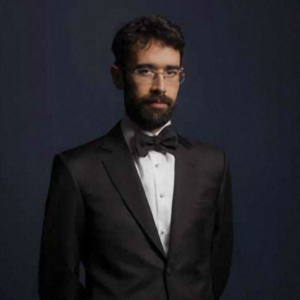It was a homecoming, of sorts, for Ariel Nasr, BA(Hons)’05. His documentary film The Forbidden Reel was one of eight films featured in this year’s FIN Atlantic International Film Festival gala.
“It was very special to be part of it,” Ariel says, even though the pandemic stripped the occasion of the usual pomp and packed theatres.
“I am just grateful that I have been able to get the film out there. And I am so impressed that people responded so well even though it was only online. I know that my mother was watching, and my brother was watching.”
It was a memorable moment for Ariel. But there was another screening that ranks right up there with it.

Ariel was born in Halifax but moved with his family to Ontario when he was nine. He returned to the east coast to attend King’s and while in his last year Ariel made his first video documentary. The doc bug bit him. And it bit hard. In 2008 Ariel moved to Afghanistan, his father’s homeland, to learn about his heritage and to grow as a filmmaker. He discovered a country, complex and nuanced, “that is full of millions of stories.”
Ariel made documentaries, winning awards. He switched to fiction and earned an Oscar nomination for Buzkashi Boys in the Best Live Action Short Film category in 2013.
Along the way, Ariel came across the incredible story that would lead to The Forbidden Reel. He stumbled upon Afghan Film, the state’s film production company. It had an archive of Afghani films dating back decades—films that were supposed to have been destroyed by a radical branch of the Taliban. But a Taliban official tipped off Afghan Film to the impending raid.
As Ariel explained on CBC Radio’s The Current, “They were able to hide the films, and what they did as an act of subterfuge was actually offered them films that were less valuable.”
The surviving films provided Ariel insight into Afghanistan’s cinematic history and soul. He began work on The Forbidden Reel, looking at Afghanistan’s recent history through the lens of the country’s cinema. He watched the films, learning from them.
“There were two films in particular that were influential. The House of History was one. The Mujahideen had banned this film in 1996. It was a kind of cry of anguish about the civil war. The voice and intention of the film really impressed me. So much so that I was really determined to meet the director,” Ariel explains.
But the director had left Afghanistan in 1998. Through Facebook Ariel found him—in Montreal, where Ariel lives.
“I showed him a rough cut of my doc and he gave the project his blessing. We had a world premiere of his film in Montreal with the help of Concordia University. The film had never been publicly screened. It’s something I wanted to do with my film— promote the Afghan films. It was, in a small way, confirmation that the project was serving its purpose.”
But it was the screening of The Forbidden Reel in Kabul that may have provided the greatest confirmation.
“That was the big celebration,” Ariel says. “Screening it with a full room of filmmakers. They talked about themselves, their history and their heritage.”
Theirs, and Ariel’s.
“By studying their films I came to believe through their intentions and style, and their determination to document what was happening in Afghanistan as history unfolded— that these guys were my mentors and my heritage on a creative level. I learned so much about film making in the midst of crisis. They are my heroes.”
Canadians will get a chance to see The Forbidden Reel. It is scheduled to be available through Knowledge Network, TV Ontario and Al Jazeera Witness.

